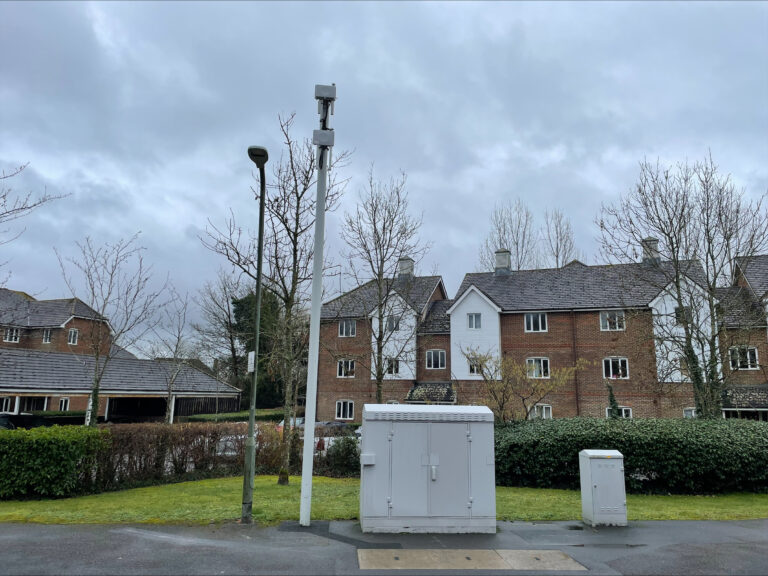
Photo: André François McKenzie on Unsplash
Fort Worth shares results of Bitcoin-mining pilot
03 November 2022
by Sarah Wray
A six-month pilot in which the City of Fort Worth in Texas mined Bitcoin from its basement data centre made around US$1,000.
In a presentation to the City Council this week, Carlo Capua, Fort Worth’s Chief of Strategy and Innovation, pitched the initiative as being less about profit and more about making a name for the city as an innovation leader and attracting technology firms.
He said the experience was “like building an aeroplane while we flew it with a blindfold on and one arm behind our back, because there are laws that have not been written yet to govern crypto.”
The pilot, which launched in April this year, made the city the first in the US to mine Bitcoin. The trial initially used three machines which were later swapped for a single mining device.
“Fort Worth is not afraid to be an innovative city,” Capua said. “We tallied nearly 753 million media impressions from this project, which has now branded our city as innovative on a global scale. It makes sense that high-tech companies want to do business in a tech-friendly city.”
He said companies in California, Maryland, Massachusetts and New Jersey have become interested in Fort Worth after hearing about the programme.
Gateway innovation
Capua recommended that Fort Worth continues its mining programme to learn more about cryptocurrency and as an anchor for other innovation. A decision will be scheduled for a City Council meeting at the end of November.
“The Bitcoin story brings them to our front porch,” Capua said. “Then, we can share other things happening in our city.”
He mentioned examples such as the use of robotic line painters for sports fields, the National Juneteenth Museum and the Texas A&M Research Center.
Capua said the costs of the Bitcoin mining programme were minimal, with the equipment donated by the Texas Blockchain Council, and that electricity usage was “marginal” – equivalent to that of a household vacuum cleaner.
Crypto-mining companies have flocked to Texas, attracted by low energy prices and lenient regulation. By some estimates, the state is now home to about a quarter of Bitcoin mining that takes place in the US. Concerns have been raised about the impact on climate emissions and energy stability, including by Senator Elizabeth Warren.
While efforts are in progress to drastically reduce emissions from the cryptocurrency industry, analysis suggests that Bitcoin mining uses more energy globally per year than countries like the Philippines and Venezuela, mostly powered by fossil fuels.
Capua told Cities Today: “We are indeed monitoring the conversation surrounding energy consumption, which is why we’re mining at a very small scale. We actually started with three older Antminers and switched to a single, new S19 miner that is more energy-efficient than the three Antminers combined.
“As with anything tech-related, we expect the process of crypto-mining to continue to become more efficient over time.”
Regulation
A recent report commissioned by the City of Austin and led by the city’s Interim Chief Innovation Officer warned of some of the risks for cities related to cryptocurrency, even if they don’t hold any themselves.
It said, for instance, that companies are increasingly marketing cryptocurrencies to Black, Indigenous and people of colour (BIPOC) and that cryptocurrencies “share many of the hallmarks of predatory financial products which have been focused on communities of colour in the past”. Such products carry “extreme risk of fraud and loss, and little to no regulation to protect consumers,” the report noted.
Capua said: “It’s our job to always be looking around the corner to the next 10, 20, 30 years to stay ahead of the curve – this will help us deliver services more effectively for our residents and visitors. If we can test pilots and prototypes on a small scale and hands-on, we can share these experiences with other cities and collaborate on opportunities while also understanding the implications.”
He said lawmakers are now asking the City of Fort Worth about the pilot.
“We’re finding it is very difficult to be innovative and support entrepreneurship when city governments are afraid to think outside the box without adversely affecting their credit ratings or being out of compliance,” Capua commented. “Giving municipalities some guardrails around digital assets, without stifling innovation, would empower them to try new things without the threat of being penalised. This is the fastest way to achieving real progress.”
Capua said there was “something very powerful” about being the first in the country to do this and that more announcements would be forthcoming.
“Currently, I’m learning more about the metaverse and how we can use it to bring services more efficiently and equitably to our residents and visitors,” he said. “But yes, we are building a pipeline of potential ‘firsts’ for the future of Fort Worth.”











